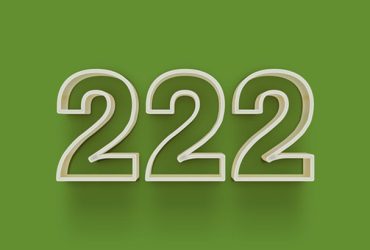Most people believe that one’s success in school depends solely on their intelligence. While intelligence indeed is a vital factor, it is often not the most important one. In fact, there is a whole set of academic strengths and weaknesses that determine how well a person will do in school.
You can find all there is to know about these academic strengths and weaknesses, including how to recognize, cultivate, and develop them, below.
The Importance of Finding Your Academic Strengths and Weaknesses

Academic strengths are skills and traits that form a base for successful learning. These skills include creativity, the ability to think quickly, good time management, critical thinking, etc.
If any of these traits are not developed well enough or at all, they are called academic weaknesses. However, the great part is that you can always develop them and turn a weakness into a strength.
These are some of the reasons that show why discovering what your academic strengths and weaknesses are is crucial:
1. You Know What the Best Approach to Learning Is for You
Knowing what your strengths are is what will, ultimately, help you thrive in academia. If you are keenly aware of what works best for you, you will be able to focus your learning and use your strengths to your advantage.
Focusing on strengths and positive traits, in general, has proven to be much more fruitful than always thinking about what you lack. It’ll help you be more confident, and you will naturally excel in whatever you set out to do.
2. It Can Help Focus Your Interests
If you know what your academic strengths and weaknesses are, you will be able to pinpoint what your profession or focus should be easier. For example, if you are good at communication and are extraverted, you will thrive in a social domain.
If you have great critical thinking skills, a career in any type of analysis, be it business, law, criminology, or literature, will be a perfect fit. Or, if you are naturally creative, trying your luck in the arts will be the best choice.
3. It Helps You Find Out What to Work On
Though it is important to always focus on the positives, it is also good to find out your weaknesses. That way, you will be able to work on them and develop them into strengths.
Of course, that isn’t always possible. Some people are naturally good at one thing, while others aren’t. But that doesn’t mean you can’t get better at something or develop a skill more if you try. Often, doing your best and working hard can make up for a lot of deficiencies.
So, it is vital to figure out your weaknesses early on. It will allow you to grow, become more self-aware, and see what areas need more work than others.
How to Find Your Academic Strengths and Weaknesses

Many people struggle to pinpoint their academic strengths. It mostly happens because they are too busy focusing on what they can’t do rather than trying to figure out what they actually can do.
Figuring out what your strengths are is pretty easy. You just need to evaluate yourself and find the traits or talents that come naturally to you. If you don’t have to try hard or at all to achieve something, you can be sure that trait is your strength.
For example, you can have great problems or conflict-solving skills. Likewise, you can be rather creative and think of stories, draw, or sing effortlessly. You can be good at sports or anything else that involves physical activity and movement. Whatever it is, if it comes naturally, it is a definite strength.
Conversely, weaknesses are those traits you can sense you lack when doing something. For example, you may be bad at managing time or overly anxious about public speaking and social interaction. If something causes you stress or requires a lot more work, it is a skill that should be worked on more.
Here are the basic ways of finding out your strengths and weaknesses, besides evaluating yourself:
• Asking others for feedback
• Taking aptitude evaluation tests
• Doing personality tests
Examples of Academic Strengths and Weaknesses
· Most Common Academic Weaknesses

1. Procrastination
In most cases, academic weaknesses are just the opposite of academic strengths. For example, procrastination as a weakness is the opposite of good time management skills.
Put simply, people who procrastinate put off starting or finishing up their work. These people usually wait until the last minute to get something done, which results in poorly completed tasks.
Though it may seem so, people often don’t put off work because they are lazy. It is actually a much more complex issue connected with low motivation, fear of failure, and low self-esteem.
2. Low Focus
A poor focus manifests itself through a short attention span. People who struggle with their focus often cannot stay focused on a single thing for a long time, which can be bad for school work.
In a lot of cases, there is an underlying issue that causes poor focus. For example, it could be ADHD, anxiety, fear of failure, low motivation, etc.
3. Bad Organizational Skills
People with poor organizational skills do not know how to separate their tasks into manageable units. As a result, they either take on too much too fast, or they take on tasks that are too small.
Some also cannot prioritize well, meaning that they do less vital tasks first. That, in turn, leaves them with less time for actually important and bigger problems to solve.
4. Lack of Motivation
Low motivation is often caused by a bad learning environment, consistently poor results, or simply not being interested in the material. Since a person is not motivated to learn or revise, they will not dedicate enough time to it. As a consequence, their results will keep being low and getting worse.
· The Most Important Academic Strengths

1. Attention to Detail
Those who have a good eye for details will seldom misread instructions or make errors in their tasks. They can also separate a task into smaller ones and focus on these parts at different times. That way, they maximize their success.
Most people with great attention to detail are well-organized and have good focus. They are also quite engaged in every task they complete.
2. Creativity
Though creativity is often associated with the arts, it is a vital skill for other careers as well. It involves being good at visualization and solving problems, apart from the obvious connections to being artistic.
Creativity also involves being innovative and thinking outside the box. It is a skill that can come in handy in any profession.
3. Critical Thinking
Critical thinking refers to one’s ability to analyze a situation or concept freely without relying on any preconceived ideas. It is also closely connected to being able to examine our own way of thinking.
Those who are good at critical thinking can analyze, reflect, and plan well. These skills are crucial both in the workplace and in one’s personal life.
4. Good Problem-Solving Skills
Problem-solving is one of the most important academic skills. It involves analyzing a problem, coming up with various solutions, and evaluating each one to see what is the best option given the context.
These skills can come in handy in academic life, but also in life in general. For example, it can help you keep personal relationships afloat and manage your social life.
5. Perseverance
Often seen as just a character trait rather than something connected with learning, perseverance can also determine how well you will do in an academic setting. It will influence how hard you will work for something and how long you will keep at it after things get tough.
This skill is a vital asset for turning weaknesses into strengths. Those who are persevering will not let their shortcomings determine their success. Instead, they will work on them and prevent them from becoming real obstacles.
6. Flexibility
Flexibility refers to your ability to adapt to change. A highly flexible person will overcome difficulties and adapt to new circumstances quickly. This skill is closely connected with being good at solving problems, as it requires having multiple solutions ready at all times.
7. Good Organizational Skills
Good time management and organizational skills are pivotal for success in academic life. Being able to organize tasks according to priority while still completing everything in time takes practice.
This skill makes juggling multiple assignments easier. It also allows you to still have a social life and time to relax aside from all your work.
How to Cultivate Your Academic Strengths and Overcome Your Weaknesses

· Cultivating Strengths
Contrary to popular belief, the classroom isn’t the only place where academic strengths can be cultivated. In fact, the best way to develop them is to do it through everyday activities.
You can enrich your academic skills through music lessons, for example. As simple as it may seem, learning how to play an instrument can help you with your attention to detail and improve your focus.
Your academic skills can also get better through joining certain clubs, participating in debates, or taking up new hobbies. In essence, anything that stimulates the brain and requires engagement, interaction, or solving a problem can help your academic skills.
You can even improve your skills through responsibility and chores. You can do it by making a to-do list and sticking to it, getting a pet and caring for it, or being meticulous about cleaning. Any of it can help you get better in your academic endeavors as well.
· Overcoming Weaknesses
Though you can always improve yourself, it is essential to remember that not all weaknesses can turn into strengths. Most of the time, all you can really do is try hard and hope it is enough. In most cases, it is.
If you struggle with procrastination and focus, breaking your tasks into smaller parts might be a good idea. Start by doing things for only a few minutes at a time, and then increase the duration slowly over time. Having someone help and monitor you might also help.
You can improve your organizational skills by writing lists. Start small by only writing a few things down, like what you need to complete for the day. As time passes, the lists can become more detailed as you start breaking down individual tasks and prioritizing different parts.
If you are afraid of public speaking, practicing is the best solution. Stand in front of a mirror and give your presentation over and over again. That way, you will get so good and natural at speaking about your topic that you will not be too insecure about messing up.
Practice is, essentially, the way to improve any academic skill. Don’t focus on everything you are doing wrong. Instead, try your hardest to get better, and results will show.
To Conclude
Being aware of your academic strengths and weaknesses can vastly improve your standing in school, college, and later on at work. It is important to know yourself well so that you can improve your existing skills and turn your weaknesses into new strengths. Hopefully, this little guide helps you get started on that journey.










